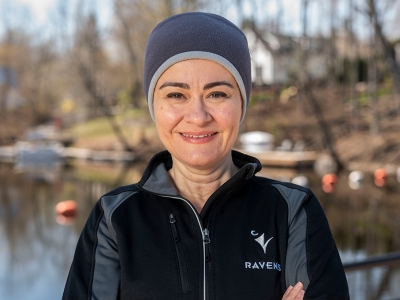Earth’s surface is mostly water, but only a small fraction of that water is fresh, and most of that fraction is locked away in alpine glaciers, polar ice caps and remote lakes. Less than .007 per cent of Earth’s water is both fresh and readily available.
But even then, it isn’t always safe or easy to actually obtain it. Some available water is polluted or contaminated with disease-causing pathogens. Other sources are far away and require time-consuming trips to obtain.
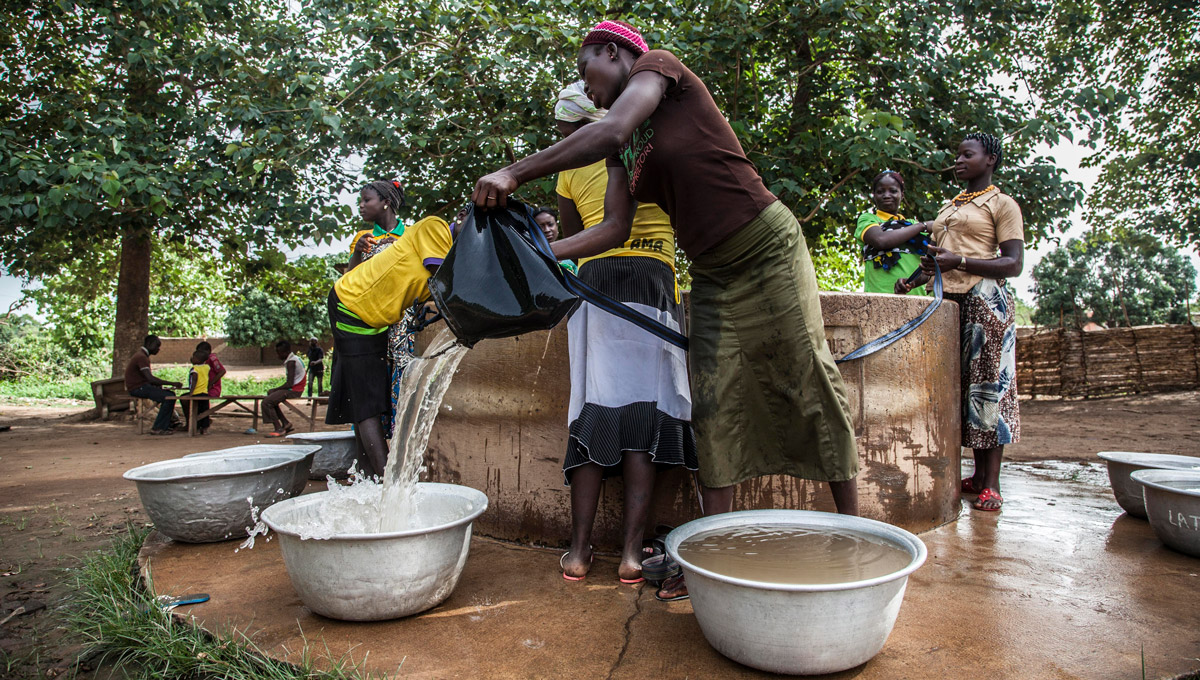
Several women collecting water in a well to the outside of the village of Fo Bouré, Benin.
Women are disproportionately impacted. They are more likely to be responsible for obtaining water, and the time spent fetching water is often time that girls would otherwise spend studying or in school.
Women are also more likely to be responsible for household tasks like cooking, cleaning or laundry that can expose them to contaminated water and make them sick.
So, how do we fix these disproportionate impacts?
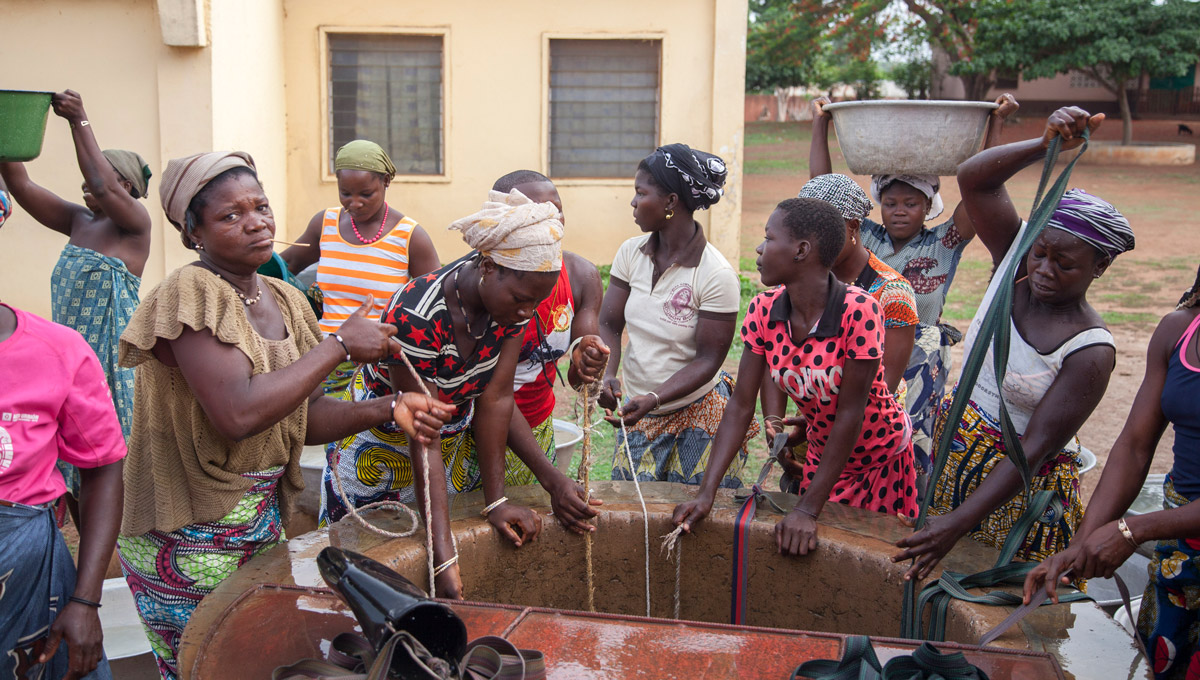
Involving Women in Decision-Making Around Water Management
Ensuring women are more involved in making decisions about water management would be a start, says Prof. Frances Henry.
On March 22 at Dunton Tower, the York University Emeritus Professor spoke at Water Quality: Women Do Most of the Work! This World Water Day 2019 event was co-hosted by Carleton’s Global Water Institute and the Royal Society of Canada (RSC).

Prof. Frances Henry
“Women have many roles and responsibilities in the usage, distribution and control of water quality,” said Henry, a Fellow of the RSC.
“They are the main users and often producers of this important element – critical for life and health – but have little or no governmental or legislative control over its use and management. Governments must take more responsibility in providing the resources to maintain good water quality, and more women need to be in administrative and supervisory positions to make sure that happens.”
This World Water Day, the Inter-American Network of Academies of Sciences (IANAS) published Water Quality in the Americas: Risks and Opportunities. Henry, a social anthropologist and the Canadian IANAS’ Women for Science program, was the lead author for the book’s chapter on “Gender, Women and the Quality Water.” At the event, she recounted early challenges that she and her colleagues faced when they sought to publish on the relationship between gender and water.
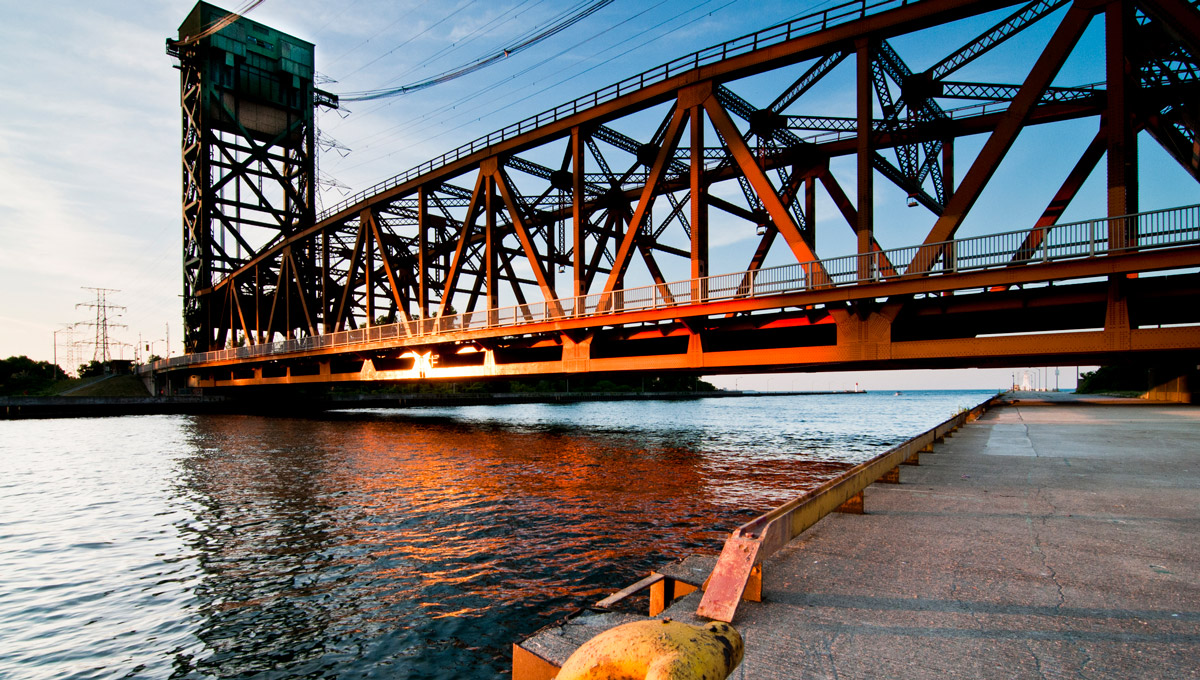
Canadians Can’t Afford to be Complacent about Water Issues
Many water quality problems are most evident in developing countries, and much of the research into these issues trains its focus there. Yet Canadians shouldn’t be complacent, cautions Prof. Banu Örmeci, a faculty member in Carleton’s Department of Civil and Environmental Engineering who specializes in the study of wastewater management.
“The notion is that we have lots of water in Canada, and all of these lakes,” says Örmeci, Canada Research Chair in Wastewater and Public Health Engineering and Jarislowsky Chair in Water and Global Health.
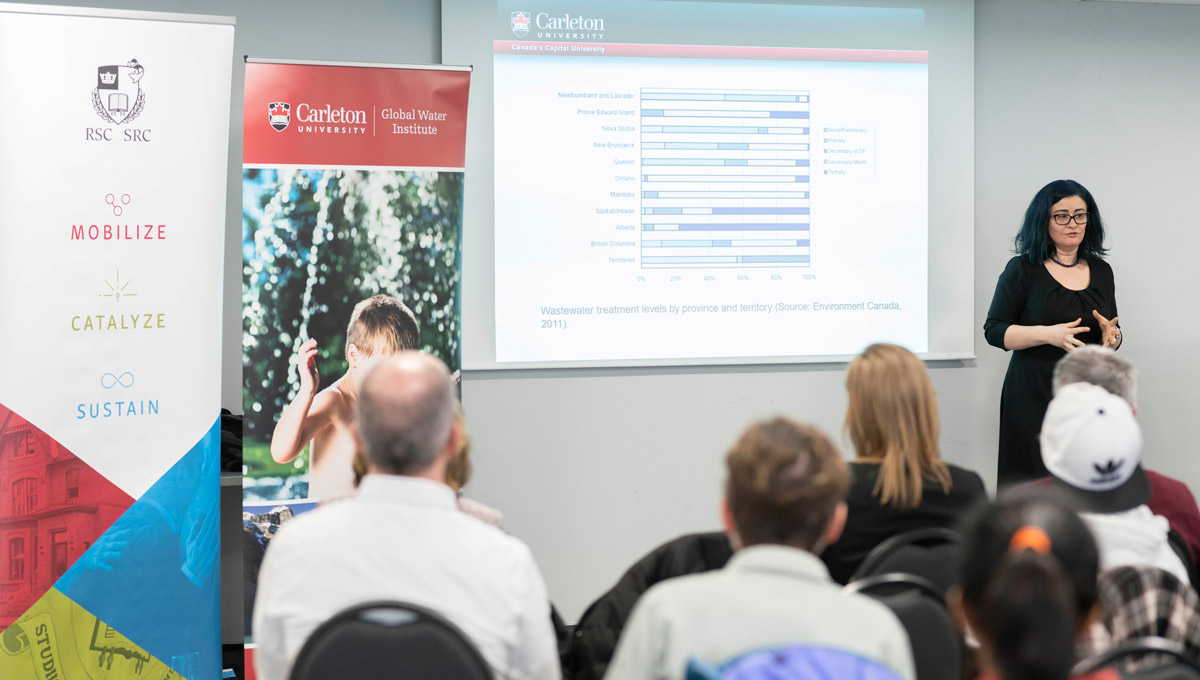
Prof. Banu Örmeci
“But we don’t have that much water. The reason is that a large percentage of Canadians lives very close to the American border. It’s just a narrow strip of population. And those are the places in Canada that have water shortages. Having water up north doesn’t really help, and we do have serious regional water shortages in the south. And in the north, we have serious water quality issues in our Indigenous communities”.
Örmeci notes that Canadians aren’t always model stewards of the water resources we do have access to.
“We are not doing a good job in protecting the quality of our water. We really pollute a lot. Climate change is another challenge. In Canada, its impact is two to three times more than other countries. That is going to be a major problem.”
Tuesday, April 2, 2019 in Environmental, Feature Stories, Research, Water, Women in Engineering
Share: Twitter, Facebook


